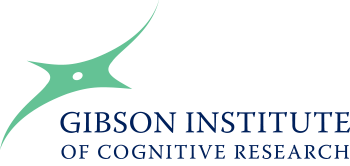Our Research on Cognitive Training for Traumatic Brain Injury
Moore, A.L., Carpenter, D., James, R., Miller, T., Moore, J., Disbrow, E., & Ledbetter, C. (2020). Neuroimaging and Neuropsychological Outcomes Following Clinician-Delivered Cognitive Training for Six Patients with Mild Brain Injury: A Multiple Case Study. Frontiers in Human Neuroscience, 14(229), 1-15. https://doi.org/10.3389/fnhum.2020.00229
In this study, we explored the statistical and clinical significance of cognitive changes and transfer of training to real-life functioning following 60 hours of LearningRx brain training for six patients with mild traumatic brain injury (TBI) or non-traumatic acquired brain injury (ABI). We also explored changes in functional connectivity and neural correlates of cognitive test gains following the training using fMRI. All cognitive test scores showed improvement with statistically significant changes on five of the seven measures (long-term memory, processing speed, reasoning, auditory processing, and overall IQ score). The mean change in IQ score was 20 points. Patients reported improvements in cognition, mood, social identity, work and school performance, and Instrumental Activities of Daily Living (IADLs). With MRI, we documented significant region-to-region changes in connectivity following cognitive training including those involving the cerebellum and cerebellar networks. We also found significant correlations between changes in IQ score and change in white matter integrity of bilateral corticospinal tracts (CST) and the left uncinate fasciculus.
Ledbetter, C., Moore, A.L., Mitchell, T. (2017). Cognitive effects of ThinkRx cognitive rehabilitation training for eleven soldiers with brain injury: A retrospective chart review. Frontiers in Psychology, 8(825). doi: 10.3389/fpsyg.2017.00825
The current study examined the cognitive outcomes following ThinkRx, a clinician-delivered cognitive rehabilitation training program for soldiers recovering from traumatic brain injury (TBI) and acquired brain injury (ABI). In a retrospective chart review, we examined cognitive outcomes of 11 cases who had completed an average of 80 hours of ThinkRx cognitive rehabilitation training delivered by clinicians and supplemented with digital training exercises. Outcome measures included scores from six cognitive skill batteries on the Woodcock Johnson III Tests of Cognitive Abilities. Participants achieved gains in all cognitive skills tested and achieved statistically significant changes in long-term memory, processing speed, auditory processing, and fluid reasoning with very large effect sizes. Clinically significant changes in multiple cognitive skills were also noted across cases. Link to article: http://journal.frontiersin.org/article/10.3389/fpsyg.2017.00825/full
Ledbetter, C., & Moore, A. (2018). Neuroimaging outcomes of a cognitive rehabilitation training program. Journal of Neuroimaging, 28(2), 225-233. doi: 10.1111/jon.12507
To investigate if aberrant brain connectivity and changes in brain connectivity (a neuroimaging marker of neuroplasticity), were evident prior to and after completion of a robust cognitive training program, a series of case studies were carried out in subjects with varying degrees of traumatic brain injuries (n = 5) and cognitive impairment (n = 5). MR exams were acquired on all subjects prior to and upon completion of the ThinkRx cognitive training program. In addition to MR exams, all subjects completed pre-post neuropsychological testing (WJ-IV) and condition-specific rating scales. For all cases, neuropsychological testing and qualitative outcomes measures increased, supporting that the robustness of the training program held for each imaged case study. Normalization of DMN connectivity, including decreased hyperconnectivity and reoccurrence of anticorrelated activity, was evident in the most severe TBI case. At the group level, significant training-induced changes in neural connectivity were identified. Read the article. Or read the abstract on pages 230-231:Neuroimaging Outcomes for TBI and MCI_J of Neuroimaging
Moore, A.L., & Ledbetter, C. (2018). MRI, qEEG, & neuropsychological outcomes following cognitive rehabilitation training for severe traumatic brain injury: A clinical case study. Presentation at Brain Injury Summit, Jan 2018, Vail, CO.
Using a single case design, we examined neural connectivity changes with fMRI, qEEG, and changes in IQ score, working memory, long-term memory, visual & auditory processing, processing speed, attention, reasoning, and everyday functioning following 60 hours of cognitive training 8 years after a severe Traumatic Brain Injury. Neuropsychological testing results showed a 21-point increase in IQ score and significant gains in working memory, processing speed, logic and reasoning, and visual processing; as well as gains in long-term memory and auditory processing. FMRI showed normalization of the Default Mode Network (DMN) with reappearance of anti-correlations, and decreased hyperconnectivity was evident post-training. Post qEEG showed normalization of activity in the left frontal region which was previously abnormal. Functional outcomes included improved motivation for life, better focus and problem-solving, improved mood, no deficits in daily living tasks, and a return to former high level career field. Link to presentation
Moore, A.L., Ledbetter, C., & Carpenter, D. (2017). MRI and neuropsychological outcomes following cognitive rehabilitation training in traumatic brain injury: A Multiple case study. Presented at Society for Neuroscience, November 2017, Washington, DC.
Using a multiple case study design, we examined neural connectivity changes with fMRI and changes in IQ score, working memory, long-term memory, visual & auditory processing, processing speed, attention, reasoning, and everyday functioning following 60 hours of cognitive training for 5 clients with Traumatic Brain Injury. Results from the Woodcock Johnson IV -Tests of Cognitive Abilities showed increases in IQ score for all cases (n = 5), with a mean increase of 21 points. All cases achieved gains in long-term memory, processing speed, logic and reasoning, and auditory processing; and four of five cases gained on visual processing and working memory. mTBI participants exhibited significant training-induced changes in neural connectivity. Normalization of the Default Mode Network (DMN) was evident in the severe TBI case along with the appearance of anti-correlations and decreased hyperconnectivity. Link to presentation

